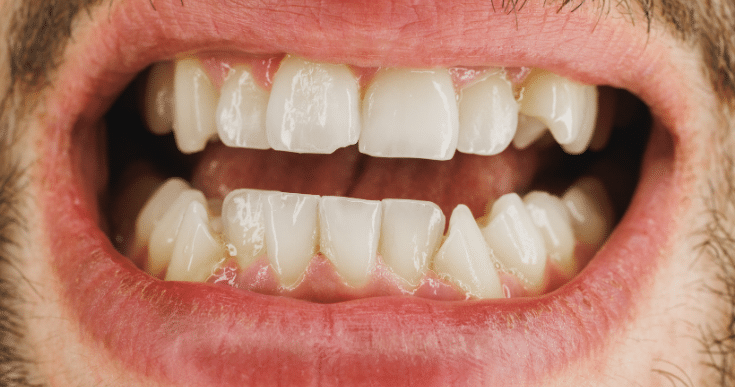
It is common knowledge that smoking causes lung cancer. It’s linked to cardio-pulmonary issues and can worsen asthma symptoms by causing coughing fits. It’s also general knowledge that smoking causes emphysema and other chronic lung diseases. The majority of tobacco users are aware of the dangers.
Another adverse effect of smoking that doesn’t get as much attention is the damage it causes to your dental health. It can substantially weaken both, restricting blood flow to your mouth and turning it into a bacteria breeding ground. Apart from this, you might also suffer from the problem of bad breath, an increase in the amount of time it takes for you to recover from oral surgery, teeth discoloration, increase in the risk of suffering from oral cancer.
Here at Arcade Dental, We understand how tough quitting smoking can be. It’s something we encounter with patients in Pharr, TX, and the surrounding areas on a daily basis. Many of these patients, however, are unaware of how damaging their habit is to their dental health. That’s why we put up this article to explain why tobacco is so awful for your teeth and gums, as well as some strategies for dealing with tobacco’s effects on your teeth and gums. Your dentist may be able to repair smoking-related damage.
Know The Ways In Which Tobacco Damage Your Teeth
Tobacco has a number of negative effects on your teeth. Cigarettes reduce your mouth’s ability to fight illness, leaving you vulnerable to the bacteria that smoking produces. Plaque and bacteria thrive when your mouth is unable to defend itself. This causes issues ranging from tooth discoloration to tooth loss and the necessity for root canals.
You short-circuit your body’s auto-immune defenses when you smoke. It will be difficult for your body to defend itself. Tartar accumulation becomes a big problem when your body is unable to fight infection. When you smoke, your mouth’s blood circulation is drastically reduced. Tobacco grit can irritate teeth and wear away their protective enamel coating.
It’s also not only smokes. Smokeless tobacco can injure your tongue in more ways than one, and it’s not just because of the nicotine. Sugar is a component of certain chewing tobacco brands. You expose your teeth to harmful sugar that can cause tooth decay when you hold the cigarette in your mouth for lengthy periods of time, in addition to all the other problems nicotine can cause.
What Causes Smoking To Be So Harmful to Your Teeth?
Cigarette smoking isn’t simply bad for your teeth; it can also kill them. Take a look at these sobering figures from the Centers for Disease Control and Prevention:
- Smokers have four times the rate of non-smokers in terms of poor dental health (16%).
- Smokers are less likely than non-smokers to have seen the dentist in the previous five years.
- More than a third of smokers have three or more dental problems.
Surprisingly, there appears to be a correlation between financial worries and smoking, which can exacerbate tobacco’s negative effects on oral health. More than half of smokers who had not seen a dentist in the previous six months indicated it was due to financial concerns, according to the CDC.
Outcomes Of Smoking
When you take a drag, the harmful poisons you inhale come into close touch with your teeth, which grip the cigarettes you smoke. It’s no wonder that tobacco has such a negative impact on them. Serious dental problems can manifest themselves in a variety of ways.
- Teeth discoloration or browning
- Calculus (hardened plaque) formation
- Bleeding from the gums
- It acts as a blood circulation barrier
- Having a dry mouth
- Decay in tooth
- Result in the need for root canal therapy
- Tooth loss
Smoking has a number of negative impacts on the mouth, including gum recession and the development of periodontal disease. Smokers are 64.2 percent more likely than nonsmokers to acquire gum disease. In the United States, smoking is responsible for more than 40% of all periodontal diseases. When bacteria in the mouth accumulate in the gums or soft tissue surrounding the teeth, the problem arises. Periodontal disease arises when the gums become inflamed.
Lastly, you need to know that smoking can affect your gums as well. As the nicotine in cigarettes reduces the amount of oxygen given to the soft tissue in the mouth, smokers generate more bacterial plaque in their mouths. Nicotine, on the other hand, constricts blood vessels, which can affect how long it takes to identify gum disease. When smokers acquire a gum infection, they are less likely to bleed, which alerts the dentist to the infection’s presence. Therefore, smokers’ gum disease diagnosis may be delayed, and the disease may deteriorate in the interim.
We hope that you have now gotten reasons to give up smoking. If you want to know more things about oral health, make sure to go through the blogs posted by us.
Arcade Dental also provides the best dental care services in Pharr, TX. Book an appointment with us to have a healthy smile.




